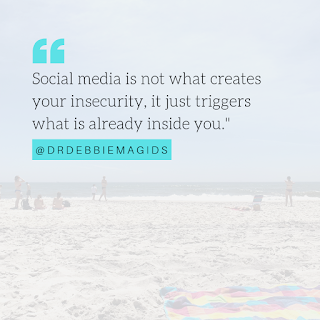What to Look for When Choosing a Therapist

I love being a psychologist. It is a really unique job.
As in any field, no two shrinks are alike. Therapists have different levels of education, completed different internships and field placements, and went to different schools. People recommend therapists for a variety of reasons. Shrinks may hold a certain place in society, have many books written or had multiple guest appearances on TV. For me, as a provider and consumer of therapy, these considerations do not mean much. We need to know what to look for besides their outside image.
A problem I see is when someone is in need, and they put all their trust into the professional:
“Oh, but this person has a doctorate, they must know what they are doing!”
“She helped my friend through the most difficult points of her life so she can do that for me.”
It is a confusing process... figuring out what good therapy really is.
One therapist can be great for a person, but not connect to someone else.
If my practice has taught me one thing, it is that my work speaks for itself. I have helped hundreds of clients gain insight into their lives and make the changes needed to attain their goals.
One of my competencies in this field is being okay with the fact that I have met with clients that did not like what I had to offer to them either. We are not all good for everyone. Therapists have different modalities, personalities, styles, triggers, and personal issues of our own that we bring to the table.
Here are some guiding questions to ask when consulting with a therapist that may help determine whether he or she will be a good fit for you:
Have you had your own therapy?
Many people in this profession hide behind the role and have not done their own work. We can only take you as far as we have gone. Remember - we are 95% unconscious - so if your shrink is not aware of themselves in a deeper way, they will struggle to help you get there yourself.
Can you tell me a bit about your personality?
Too many people focus on gender, race, age, etc. We cannot all have the same experiences in the world but a good therapist should be able to plug into the feelings with the client. This is why personality is so important. My style is direct and tough, while also nurturing. I talk a lot and educate on what is happening. For those that stay with me, we have great results. However, for some people I am too much, too soon. They need a softer and slower process. Both are good! It depends on who you are and what you need that will encourage you to stick with it.
What is his or her style?
Are they talking and interactive enough for you? Do you feel understood and nurtured? Are they hearing you in the right way?
Will you learn a lot from this person?
You should learn something new in your therapy almost every session. You should leave the room with a new thought, behavior to practice, awareness, perspective. In sum, you should understand a part of yourself that you were not conscious of before. I do not believe therapy is about having a good listener. We are there to guide you to insights and direction.
Are you seeing results?
This echoes my sentiments above. Is this happening for you? This is with the understanding that therapy is a process and it does take a long time to see big results. That said, you should be seeing small changes… If you are not seeing small shifts getting you closer to the big shift, you may need to reevaluate.
Are you staying to avoid hurting the therapist’s feelings?
I see too many people that stick with a therapist because they do not want to hurt his or her feelings. If you are not gaining new awareness and making changes with a therapist after time passes, leave! It is okay, you are not there to take care of your therapist. You are paying them to take care of you.
Does the therapist take ownership of their behavior and what is coming up in the room?
How does your therapist react if you disagree with them or mention that you feel like something is missing. Do they apologize or get angry? Or do they help you to understand what is happening between the two of you for your own growth? This can be tricky to navigate but is quite a learning experience.
Does trust and respect exist in your relationship?
Although this is a different type of relationship, it is in fact a relationship! You must feel connected and that this person has love for you. You need to be able to develop a trust that this human has your back and is working for your best interest.
After you find the right person, do your best to allow the therapy to work for you. Try to not keep secrets. When you are feeling something towards the shrink: anger, hurt, criticized, even if it feels hard for you to do, talk through it. Most importantly, you have to stick with the process. It is not always easy to change - and just because something is talked about once in therapy, change may not happen overnight. It is a hard and it can be slow. Whether it happens in session 4 or 50, at some point you will recognize the shift which will motivate you to keep going.


Comments
Post a Comment